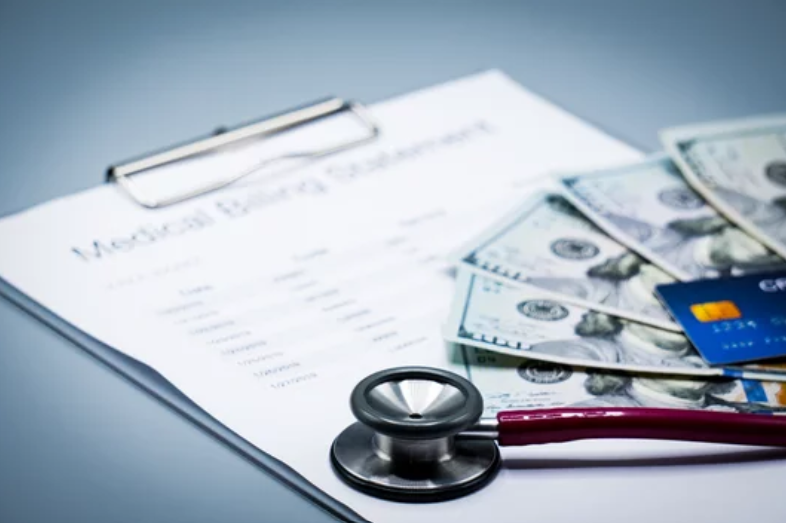Understanding Medical Debt: Key Facts Every Patient Should Know
Introduction to Medical Debt
Definition of Medical Debt
Medical debt is the unpaid balance of money owed to a health care provider or other entity for medical expenses. It can include:
- Past-due payments to a health care provider
- Ongoing payment plans
- Money owed to a bank or collections agency
- Credit card debt from medical bills
- Money borrowed from family or friends
Prevalence of Medical Debt in the United States
Medical debt is one of the leading causes of bankruptcy in the United States. If not properly taken care of, overwhelming amounts of medical debt can lead to serious financial consequences including negative credit score impacts, legal action, and debt collection. A recent KFF Health Care Debt Survey found that 41% of adults currently have some debt caused by medical or dental bills.
Causes of Medical Debt
 High Cost of Healthcare Services
High Cost of Healthcare Services
In recent years, healthcare services and insurance costs have increased in price, leaving a hefty burden on US families. The United States has some of the highest healthcare costs in the world with an average cost of $13,393 per person. This is roughly double the amount that other wealthy countries pay.
Insurance Coverage Gaps
Unfortunately, because of factors like job changes and life events, there is a possibility of a health insurance gap. This happens when you lose health insurance and have to pay out of pocket for all healthcare costs including doctors’ visits and prescriptions. Many people find themselves in this situation and cannot afford to get the healthcare they need. People may choose to put costs on a credit card or simply try to set up a payment plan.
Unexpected Medical Emergencies
Oftentimes, medical issues happen as emergency situations. When you’re unprepared for an event like this, it can be difficult to get the care needed because of lack of funds or insurance. This is one of the bigger reasons people end up with medical debt.
Impact of Medical Debt on Patients
Emotional and Psychological Effects
The emotional and psychological effects on people with high amounts of medical debt or those who are uninsured can be significant. Studies show panic disorders, anxiety and depression can be higher in those that find themselves in these situations. It can feel overwhelming and hopeless to have medical debt hanging over your head, so it’s important to know your options when it comes to budgeting for them.
Effects on Access to Healthcare
For those who have outstanding medical debts with their medical provider, some doctors won’t see patients with outstanding balances. This causes negative effects to that individual’s access to healthcare. In addition, lack of healthcare coverage and the costs associated with it can cause delays in necessary medical treatment or prescription purchase.
Strategies to Manage Medical Debt
Understanding Medical Billing
After a doctor’s appointment, a doctor’s office submits a “bill” (claim) to your insurance company. The bill is a specified amount based off of special diagnosis codes from the results of your visit. Sometimes, these diagnosis codes are not properly entered, which can cause some discrepancies in your bill. This is why it’s important to understand your bill and where the charges come from.
Negotiating Medical Bills
If you receive a large medical bill, you may have the option to negotiate part of the out-of-pocket cost the doctor is charging you. You can do this by asking for any special self-pay pricing. Another option for negotiating medical bills is to offer to set up a payment plan. In addition, you can ask to go over the terms of the bill and see if there is something you can do to make the amount more feasible for you.
Exploring Financial Assistance Programs
If you receive a large bill from a hospital or doctor’s office, you may be able to receive financial assistance depending on the qualifications of the specific provider or facility. Some or all the amount you owe could be dissolved. Nonprofit hospitals are required by law to offer financial assistance programs, and many other providers are willing to work out payment arrangements. The best way to explore these financial assistance programs is to ask the provider or facility directly what options they have available to patients.
Legal Rights and Protections
Consumer Protection Laws
There are several laws in place regarding medical debt and collection agencies including the No Surprises Act which states that you shouldn’t receive unexpected bills for emergency services received from a healthcare provider or facility that you did not know was out of network until you were billed. In addition, debt collectors are not permitted to report a medical bill to the credit reporting companies without trying to collect the debt from you first.
Understanding Medical Debt Collections
It’s important to know the limits on debt collectors contacting you. For example, they cannot contact you around the clock and you have the right to tell them to stop contacting you. You have the right to push back on coercive credit reporting – this means that debt collectors are not permitted to report a medical bill to credit reporting companies without trying to collect the debt from you first.
Conclusion
Medical debt is something that most Americans have had at some point in their life. The cost of healthcare has significantly increased over the last few decades, so it’s important to take this into consideration when trying to plan for future medical bills that may or may not be covered by insurance. If you find yourself in a situation where you have a significant amount of medical debt, don’t hesitate to reach out to the provider or facility to inquire about any financial assistance programs that they may have. If you have any questions about any of the information provided above, please contact us today. We’re here to help!



